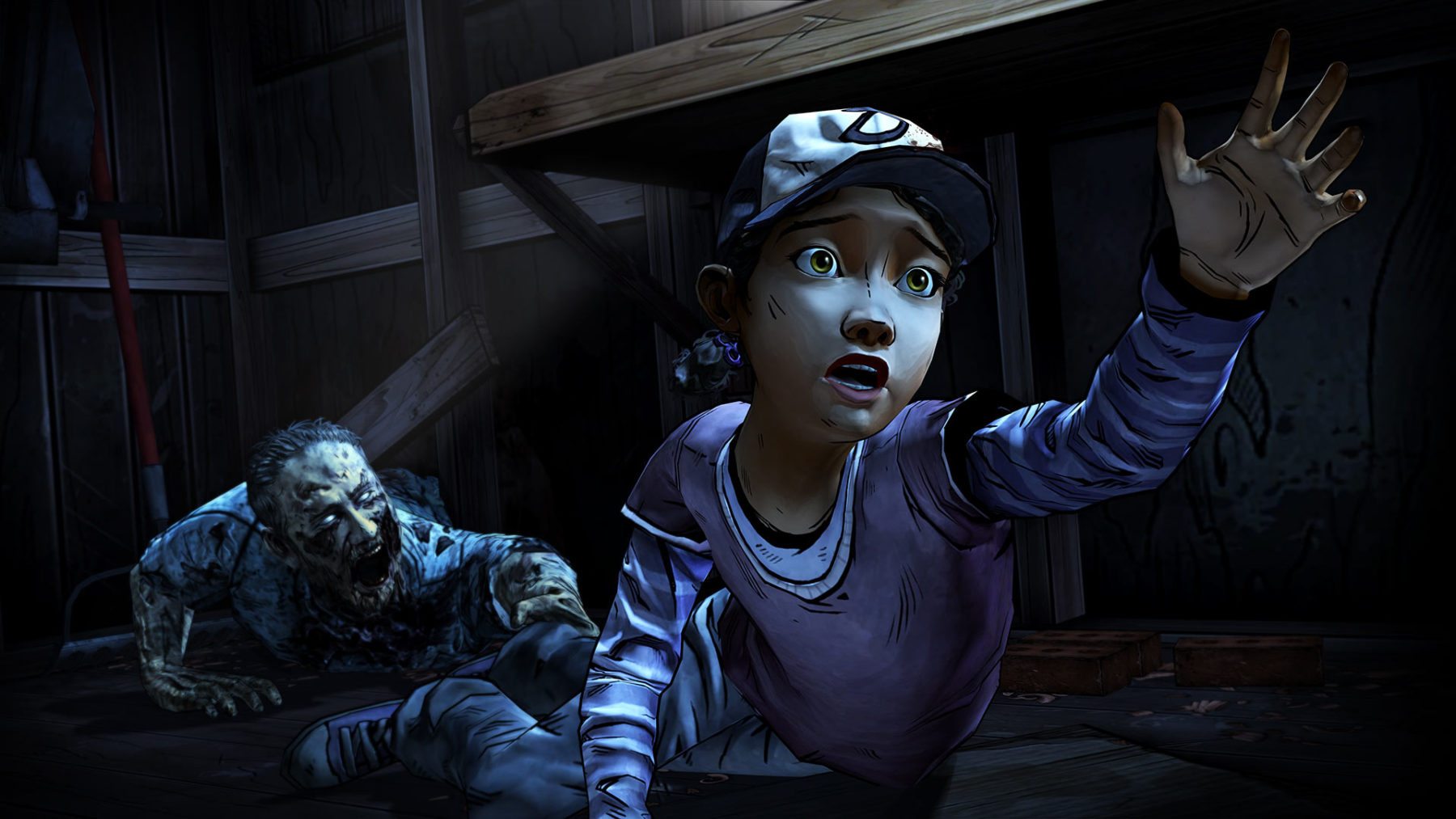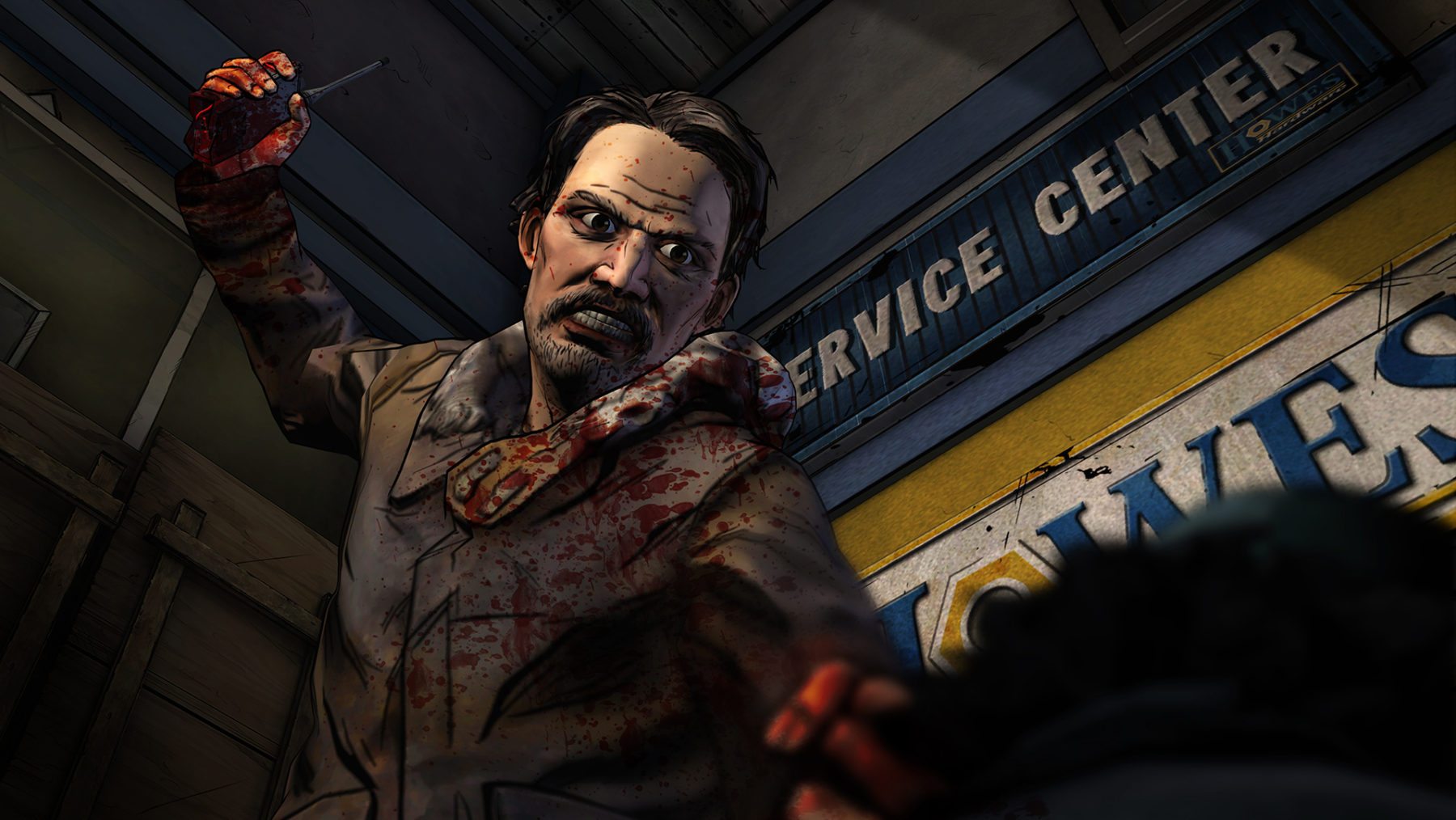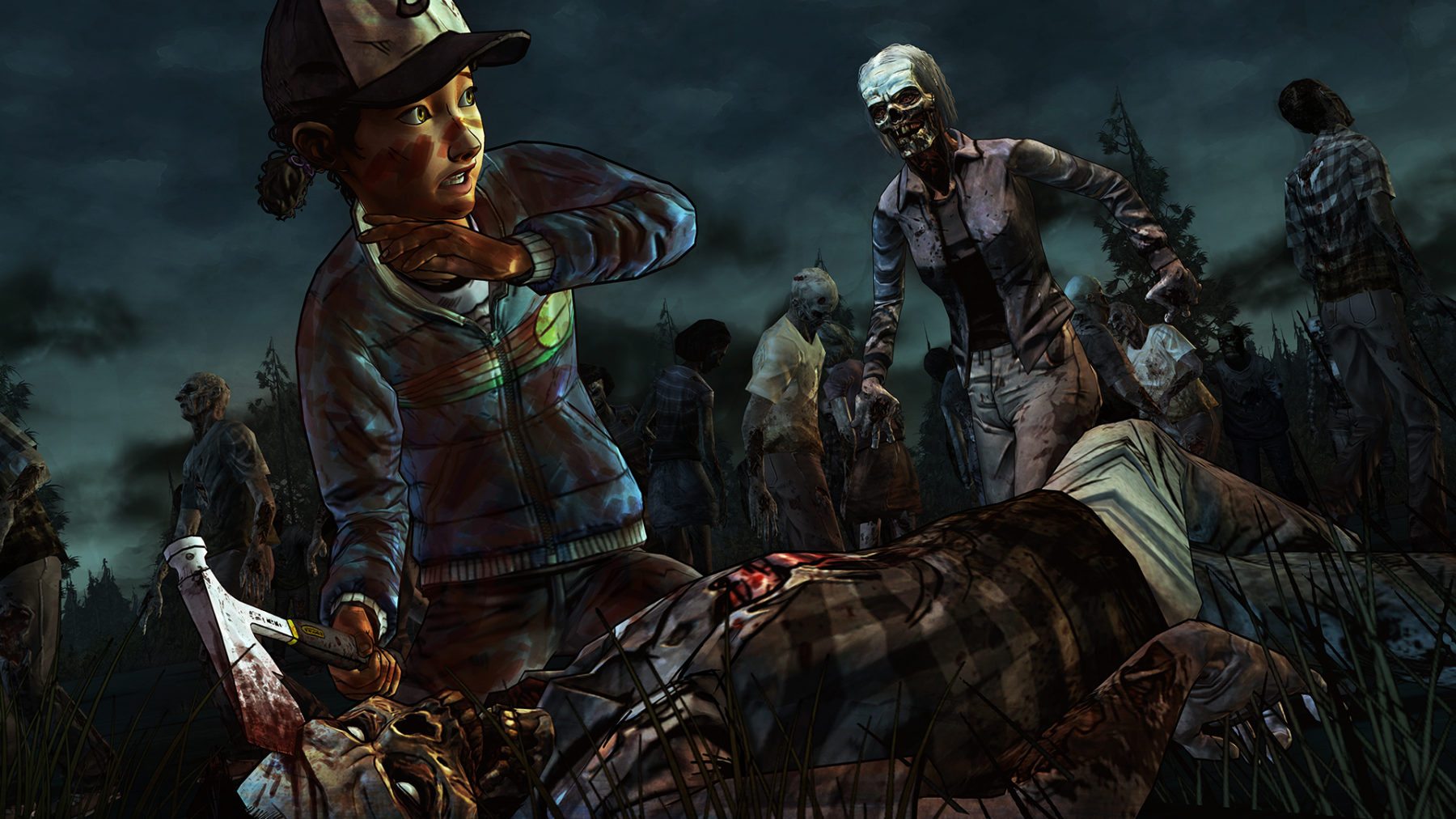Review: The Walking Dead: Season Two
Platforms: Windows, OS X, PS3, X360, iOS, PS Vita, Ouya, Android, PS4, Xbox One
Developer: Telltale Games
Price: £3.99 per episode (5 episodes)
This review contains major spoilers for the first season of The Walking Dead. [divider]
Telltale’s graphic adventure game The Walking Dead was the surprise hit of 2012, receiving critical acclaim and winning several Game of the Year awards. Much like the popular comic and television series of the same name, the game followed a group of misfit survivors as they struggled to stay alive in the midst of a zombie apocalypse. The game was praised in particular for its engaging characters and its dark, often emotional storyline. The game’s choice-based gameplay, which saw the player being forced to make moral decisions through dialogue or quick-time events, was also positively received.
However, arguably the game’s biggest strength was the relationship between protagonist Lee Everett, a university professor convicted of murder, and Clementine, a young girl separated from her parents during the zombie outbreak. From the beginning of the story, Lee becomes her guardian, mentor and father figure as they struggle to survive the many dangers of a zombie apocalypse together. Their relationship provided a touching and engaging narrative throughout the first season, one that tragically ended with Lee’s death. Therefore, when the second season was announced, there was one big question: would the second season be as interesting as the first without the central relationship of Lee and Clementine?
Throughout the second season you play as a matured and wiser Clementine, several months after Lee’s death. From the beginning, it’s clear that the overall arc of the season is deciding how Clementine should develop as a character in a zombie infested world. Should she be kind and compassionate? Pragmatic and amoral? The concept of crafting your own Clementine through the choices you make provides a satisfying and captivating story that rivals, maybe even betters, the first season’s. Indeed, it’s also an unsettling experience to watch Clementine slowly transform from a scared, little girl into a much darker character who is potentially prepared to steal, kill and abandon others in order to survive.
The new group of survivors you encounter in the second season are as interesting and varied as before, with memorable characters including good-natured Luke, the charismatic but villainous William Carver (below, voiced by Michael Madsen) and detached loner Jane, as well as the return of one or two old faces from the first season. The characters are brought to life through the game’s superb voice acting, believable dialogue and well-crafted animation, which has improved considerably since last season where the animation would glitch or lag occasionally.
Telltale’s amazing ability to craft brutal and near impossible moral dilemmas has also improved. At several points throughout the season, you are forced to make difficult, split-second decisions that will shape the story in different ways, often changing your relationships with other survivors or even determining which of two characters meet their untimely death. The interesting aspect of these choices is that there is no clear good or evil response. In fact, “all choices are equally wrong” according to one of the game’s developers. With Clementine’s dark story arc, interesting supporting characters and endless moral dilemmas, it is extremely difficult not to be immersed in The Walking Dead’s second season.
However, the concept that the player’s choices shape the game’s story in a meaningful and important way is also sometimes one of The Walking Dead’s biggest frustrations. The game has to balance the idea of meaningful decisions that alter the story, but also keeping the player on a designated path to the finish line. For example, if your actions save the life of a character that potentially could have died, that character will still inevitably die one or two episodes later. For these select characters, you can only decide when they die – not whether they ultimately die or not – which makes your choices feel painfully meaningless at times.
Another similar instance happens at the end of the fourth episode. There’s a particular event where the game completely ignores what you chose in an earlier, related moral dilemma and it becomes apparent that whatever choice the player made in that situation would have resulted in exactly the same outcome. The concept that “the story is tailored by how you play” (which is the message that appears at the start of each episode) is a well-crafted illusion, which has become more apparent in the second season.
Nevertheless, this is contradicted by the season’s concluding moments where the last sequence of harsh and difficult moral choices result in one of five different endings, each one exploring how your choices have shaped Clementine’s personality. These alternative endings are an extremely satisfying and interesting way to conclude Clementine’s journey and are one of the few times where your decisions feel like they are truly important.
Despite my concerns with the occasional lack of impact of the game’s moral decisions, I very much enjoyed The Walking Dead’s second season overall. Telltale are masters of creating an engaging and intelligent story with interesting characters, which makes you forgive the times the illusion of consequential decisions is broken. The fact I am massively excited about the recently confirmed third season (as well as Telltale’s Game of Thrones and Borderlands games) is a testament to how much I enjoyed Clementine’s tragic and twisted story of survival.
[divider_top]
 Follow us on Twitter at @BoarGames
Follow us on Twitter at @BoarGames





Comments